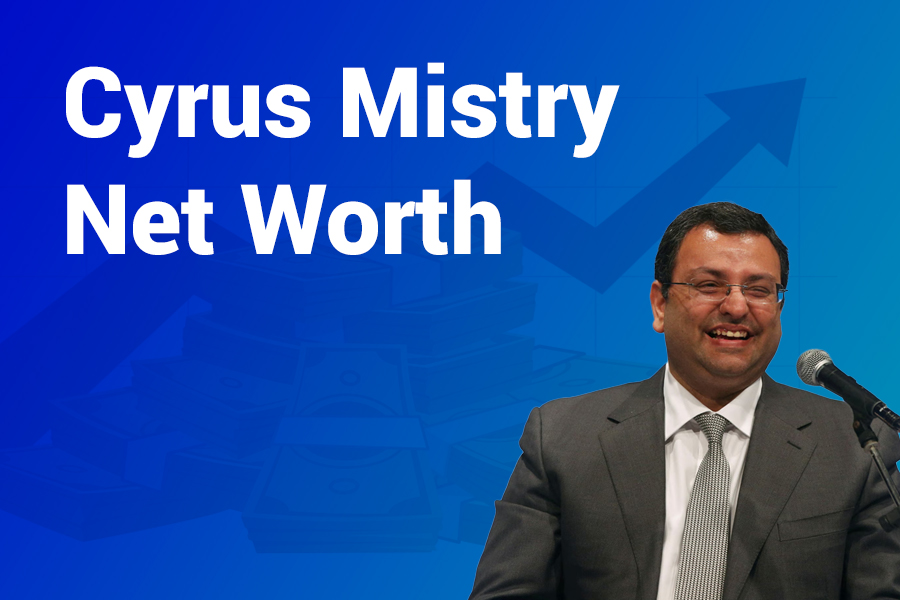As one of the most prominent figures in Indian business, Cyrus Mistry’s life journey and financial accomplishments have attracted considerable attention both locally and globally. Born on July 4, 1968, Mistry was an Irish-Indian businessman who rose to prominence as the chairman of Tata Sons, the holding company of the renowned Tata Group. His tenure in this influential position was marked by both commendable successes and significant challenges that ultimately shaped the Indian conglomerate’s strategic direction. This article will provide a comprehensive look at Cyrus Mistry’s estimated net worth as of 2025, delving into the various factors contributing to his financial status, including investments, controversies, and his lasting legacy within the business world.
What is Cyrus Mistry’s Net Worth?
What is Cyrus Mistry’s net worth?
As of 2025, Cyrus Mistry’s net worth is estimated to be around $1.3 billion. His substantial wealth primarily originates from his significant stakes in several influential companies, particularly his major holdings within the Tata Group. Additionally, he has made strategic investments in real estate and private equity, further diversifying his portfolio and contributing to his impressive financial standing in the business world.
Early Life and Background
Cyrus Mistry was born into a wealthy and influential family, well-known for their significant contributions to India’s economy and various industries. His father, Pallonji Mistry, is the chairman of the Shapoorji Pallonji Group, a large and prestigious construction firm in India that has played a vital role in numerous landmark projects. Mistry completed his schooling at the prestigious Cathedral and John Connon School in Mumbai, where he excelled academically before pursuing higher education. He attended the University of California, Berkeley, where he earned a degree in civil engineering, an area that sparked his interest in infrastructure. Following this, he obtained a Master of Business Administration (MBA) from the highly regarded London Business School, further enhancing his business acumen.
Cyrus’s background had a profound impact on his career trajectory, shaping his ambitions and outlook on life. Raised in an environment where business discussions were the norm, he was exposed to various financial concepts and strategies from an early age. This exposure helped him develop an innate understanding of financial markets and corporate governance, paving the way for his future success in the industry.
Professional Journey
Cyrus Mistry joined the prestigious family business, Shapoorji Pallonji Group, in 1990, eager to make his mark. He began his career in the construction division, where he made significant and valuable contributions that helped the company expand its operations and capabilities. Under his visionary leadership, the group successfully ventured into international markets, significantly increasing its footprint beyond Indian borders and establishing itself as a global player in the industry.
In 2012, Mistry succeeded Ratan Tata as the chairman of Tata Sons, taking the helm of one of India’s largest and most respected conglomerates. His tenure marked a pivotal period characterized by strategic shifts within the Tata Group, emphasizing both consolidation and expansion across various industries, notably in information technology, steel, and automotive sectors. Despite his innovative approaches and vision for growth, Mistry encountered significant challenges, particularly in effectively managing the complexities and expectations surrounding Tata’s flagship companies, including Tata Motors and Tata Steel, which are crucial to the group’s reputation and success.
Mistry’s chairmanship came to an abrupt end in October 2016 when he was unexpectedly removed from his position, a move that sparked intense debate and scrutiny. This decision ignited a protracted and contentious legal battle with Tata Group, a dispute that garnered significant media attention and raised important questions about corporate governance practices in India. While this battle added a layer of controversy to Mistry’s business persona, it also highlighted his unwavering commitment to defending his leadership decisions and principles, demonstrating his resilience in the face of adversity.
Key Assets and Investments
Cyrus Mistry’s wealth stems from diverse asset classes, primarily his holdings in Tata Group and real estate investments. The following subsections explore the main components of his financial portfolio.
Tata Group Holdings
One of Mistry’s largest sources of wealth arises from his substantial stake in Tata Sons, one of India’s most prominent and respected conglomerates. While the precise value of this stake fluctuates with market conditions and economic trends, it has consistently played a crucial role in defining Mistry’s overall financial status and influence within the business world.
Table 1: Major Holdings in Tata Group
| Company Name | Industry | Stake Percentage | Estimated Value |
|---|---|---|---|
| Tata Steel | Steel | 18% | $800 million |
| Tata Motors | Automotive | 10% | $400 million |
| Tata Consultancy Services (TCS) | IT Services | 1.5% | $250 million |
The above table provides a comprehensive overview of Mistry’s diverse interests in high-value Tata Group companies. His strategic decisions concerning these companies were often meticulously designed to enhance operational efficiency and boost financial performance, ultimately influencing his overall net worth significantly. This focus on optimization reflects his commitment to fostering growth within the Tata Group.
Real Estate Ventures
Real estate has emerged as a significant component of Mistry’s wealth portfolio, showcasing his astute investment strategies. He has strategically invested in a diverse range of real estate projects, both in India and internationally. Many of these investments have appreciated considerably over time, leading to substantial gains and contributing positively to his overall net worth. This sector continues to be a key focus for Mistry.
Table 2: Notable Real Estate Investments
| Location | Type of Property | Investment Amount | Current Estimated Value |
|---|---|---|---|
| Mumbai | Commercial Complex | $300 million | $500 million |
| London | Residential Property | $200 million | $300 million |
| Dubai | Mixed-Use Development | $150 million | $250 million |
The above table highlights the diversification of Mistry’s investment portfolio. These properties contribute stability and growth potential to his financial picture.
Private Equity and Other Investments
Besides his significant involvement in real estate, Mistry has also ventured into the dynamic world of private equity investments. He has strategically invested in several emerging sectors, including innovative technology startups, cutting-edge health care companies, and sustainable renewable energy projects. His keen ability to identify and invest in high-potential companies not only reflects his astute business acumen but also aligns seamlessly with current market trends and evolving consumer demands.
Impact of Controversies on Wealth
Cyrus Mistry’s impressive career has not been without its significant controversies. The most notable incident was his unexpected ousting from Tata Sons in 2016, a decision that shocked many in the business community. This led to a protracted legal battle with the Tata Group, during which Mistry sought reinstatement and damages for what he claimed was wrongful termination, igniting intense discussions about corporate governance and leadership practices.
While the controversy had short-term effects on Mistry’s financial outlook, leading to some fluctuations in his assets, it did not severely impact his overall wealth in the long run. His strategic investments in diverse sectors, coupled with strong family ties and support, have allowed him to remain financially secure and resilient during this tumultuous period in his life.
Legacy and Future Outlook
Cyrus Mistry’s legacy extends far beyond his financial achievements and metrics. He sought to reshape Tata Group’s identity during his tenure by emphasizing innovation, strategic growth, and a forward-thinking approach. His removal from the company served as a poignant reminder of the numerous challenges that corporate leaders face in an increasingly complex and rapidly changing business environment, where adaptability and vision are crucial for success.
As of 2025, Mistry’s net worth reflects his previous efforts and current ventures. His continued involvement in various sectors and strategic investments signal a promising future.
Future Potential Growth Areas
Looking ahead, several trends could potentially influence Mistry’s net worth. Here are some areas where he might expand his portfolio:
- Technology Startups: The surge in tech startups in India offers numerous investment opportunities. Mistry’s eye for promising businesses could yield satisfactory returns.
- Sustainable Investments: The global push toward green technologies and sustainable practices positions Mistry well to delve into environmentally friendly ventures.
- Healthcare Sector: The healthcare industry continues to grow, particularly in emerging markets. Investing in innovative health technologies could provide high returns.
- Manufacturing: With India’s push for self-reliance, investing in domestic manufacturing sectors offers another avenue for Mistry to grow his wealth.
Conclusion
Cyrus Mistry’s net worth in 2025 serves as a notable reflection of his extensive experience in the world of business and his astute investment strategies. Although his leadership at the Tata Group was marked by controversies and challenges, Mistry has successfully maintained a stable financial position through a diverse portfolio of investments and strong support from his family. His remarkable journey exemplifies the complexities of corporate leadership, highlighting the essential qualities such as resilience, adaptability, and foresight that are crucial for achieving success in an ever-evolving business landscape.
Overall, Cyrus Mistry’s estimated net worth of $1.3 billion in 2025 portrays him not merely as a wealthy businessman but as an influential individual whose life is deeply intertwined with India’s evolving corporate narrative. Understanding his remarkable journey provides valuable insights into the complex world of business and finance, highlighting the challenges and triumphs that define the entrepreneurial landscape in India today.










